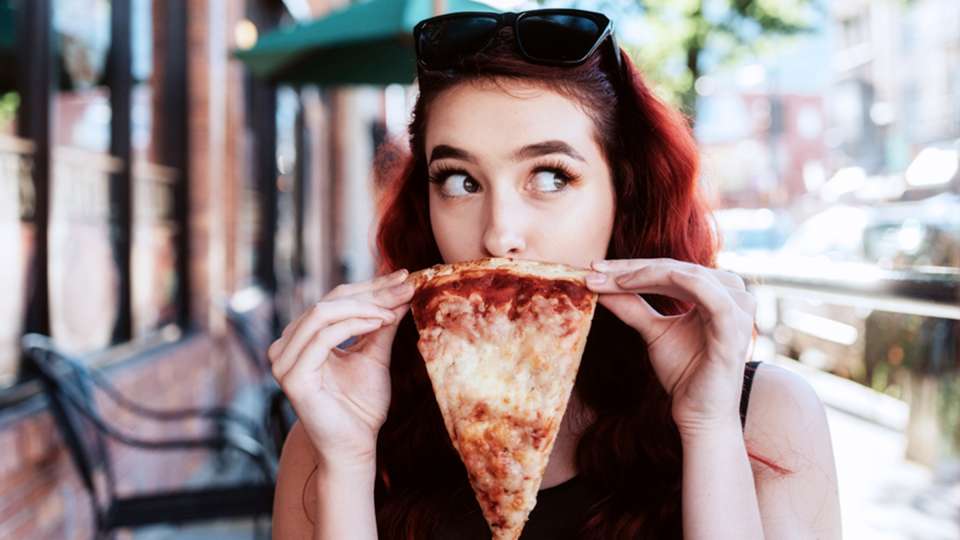
It can come out of nowhere: on your commute, at the gym, during a night out with friends. One minute you’re feeling fine, then the next you’re overwhelmed by a deep, urgent desire for … chocolate.
Yep, we’re talking about food cravings.
Whether it’s a hankering for pizza or a yearning for pie, food cravings are about as common as overcast winter days here in not-so-sunny Seattle. They’re so common, according to one nutrition study, that 97% of women and 68% of men report having them.
Naturally, this leads to a whole bunch of questions: Why do you get food cravings? Are they a sign of a nutritional deficiency? Is it better to resist the urge or to indulge in a fix?
Diane Javelli, a registered dietitian at the Nutrition Clinic at UW Medical Center - Montlake, weighs in on all things cravings, from their causes and potential concerns to how you can curb the urge (or not) when the next one strikes.
What causes food cravings?
There’s a reason why you’re craving, say, ice cream instead of potato chips.
“Research suggests that specific areas of the brain may be responsible for memory and associating certain foods with a reward,” Javelli says. “Food cravings often occur to help satisfy emotional needs, such as stress, anxiety and sadness.”
What that means is your desire for an extra-large scoop of ice cream could be because that’s what you ate as a special treat when you were a kid or how you like to unwind after an exhausting day at work.
“It’s common to crave sugar and sweets in times of stress,” Javelli explains. “Often those sweets are sources of fats, and that sugar-fat combination may help increase serotonin, a brain chemical that acts to help calm us.”
Food cravings aren’t only a learned emotional response, though. Sometimes — albeit rarely — they can be the sign of a physical need like a nutritional deficiency or undiagnosed health issue.
When are cravings a cause for concern?
If you’re having a one-off craving every once in a while, chances are you don’t have a reason to be worried. It’s when cravings become extreme that you need to take note.
“If your craving is persistent and intense and accompanied by other symptoms like fatigue, you should discuss it with your doctor to rule out any underlying health issues,” Javelli says.
One example she points to is the driving desire to chew ice. It might just seem like a quirky habit, but the need to nosh on the frozen stuff can actually be a sign that you have an iron deficiency called anemia.
“I diagnosed two colleagues with anemia due to their ice-chewing habits, and both had the diagnosis confirmed by their doctor and were later started on treatment,” Javelli notes. “These intense cravings for ice should not be ignored.”
There are other examples where a medical condition manifests as a craving. A need for salty foods can mean you’re anemic or dehydrated, while an excessive, unquenchable thirst could be an early sign of diabetes.
Whatever the craving, the most important thing is to note how often you’re having them and how deeply you’re feeling them. If you’re concerned, make an appointment with your doctor to get it checked out.
How can you stop food cravings?
If your cravings aren’t so much a medical concern as a frustrating roadblock to your healthy eating goals, Javelli has some tips that can help.
For one, don’t let yourself get hangry. A hungry you doesn’t tend to make the best food choices.
“Eat small, frequent meals throughout the day with a mix of fruits, vegetables, whole grains, protein and heart-friendly fats,” she says. “Keeping your blood sugar stable and not getting overly hungry may help reduce cravings.”
You can also try to employ a variety of self-control techniques to curb your cravings when they do pop up. Focus on your nutrition goals instead of your cravings, distract yourself with a completely different activity or try visualizing the temptation as something unappealing to turn your mind off from it.
If ignoring or resisting your craving only makes it worse — been there, done that — you don’t have to feel down about indulging every now and then. Instead, try to set yourself up for success when you do choose to enjoy that desired food. Rather than buying a pint of ice cream, opt for a mini cup. Instead of a giant family-size bag of chips, choose snack-size bags.
“Buy only a single serving of foods that tempt you to make it easier to satisfy those cravings without going overboard,” Javelli says. “Sometimes giving into that chocolate craving by having a small serving every now and again works to satisfy it.”

 Healthy ideas for your inbox
Healthy ideas for your inbox





